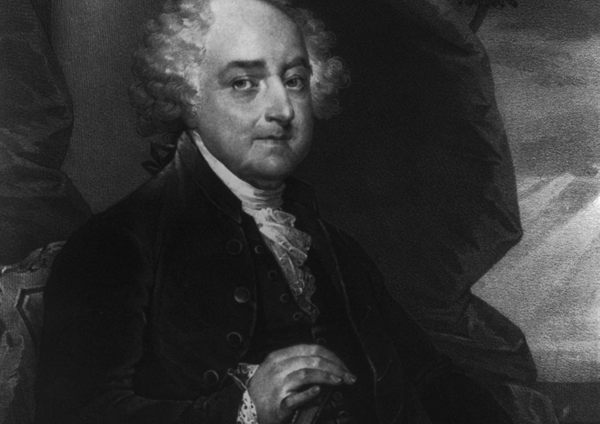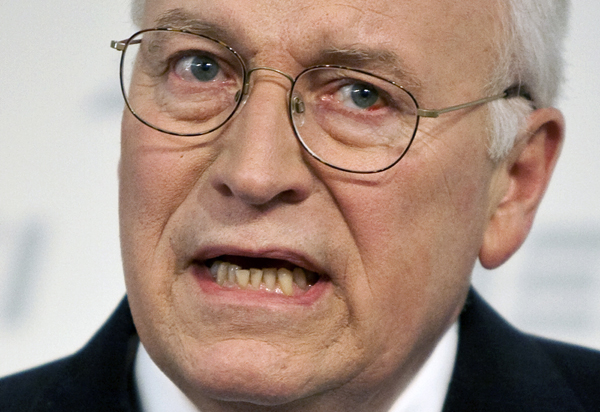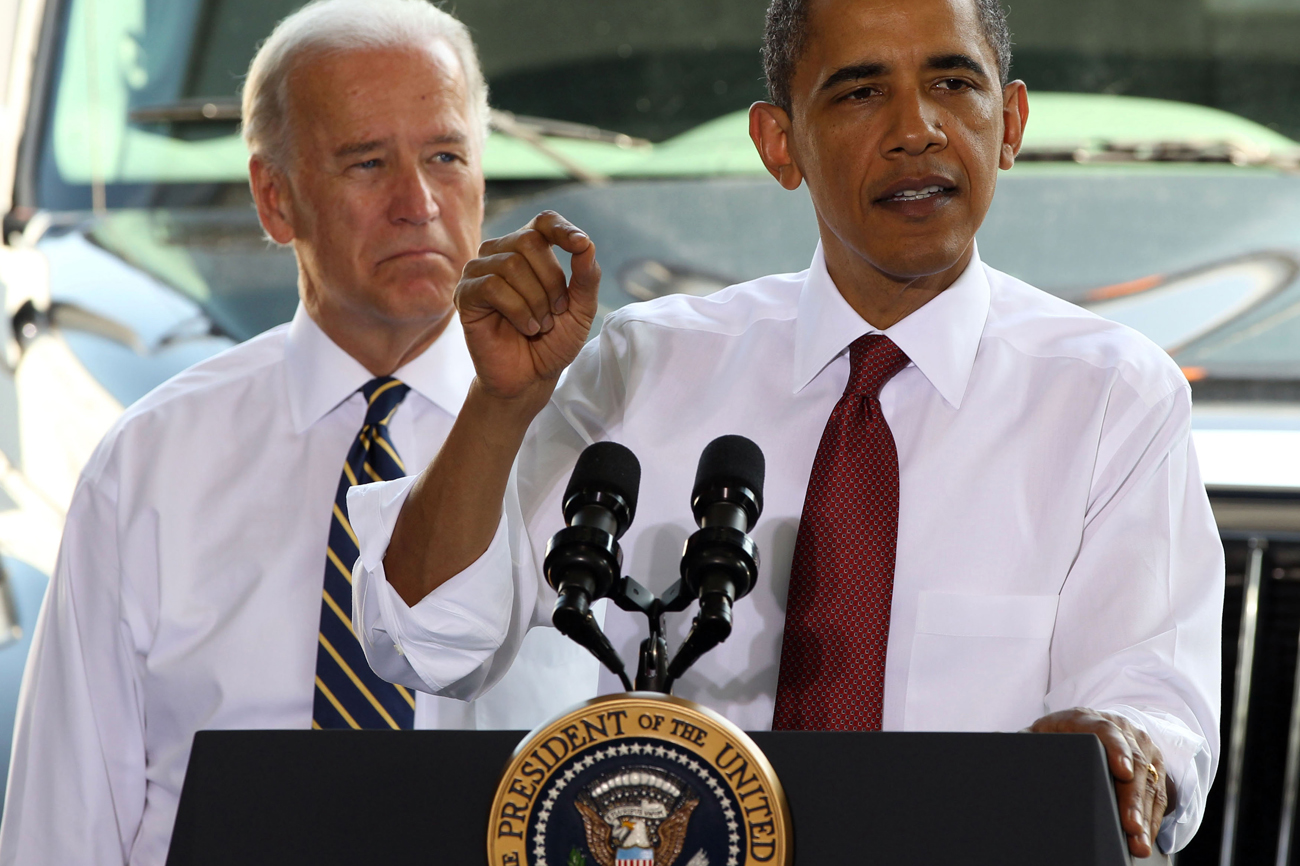When George Washington became America’s first president, elected together with him as vice president was John Adams. Adams was a man of great accomplishment. He had been one of the key figures in the diplomatic team that won European support for the struggling, new country. He had helped write the Declaration of Independence as well as the new country's Constitution. He was one of the nation's most thoughtful public intellectuals, in a group that included such figures as Thomas Jefferson, Ben Franklin and Alexander Hamilton.
The vice presidency could have been seen as a great prize - the second highest office in the new country's new government (Adams later did become president for one, controversial term after Washington’s second four-year term of office). The occupant is the man who would need to step forward instantly, should the president pass away or be removed from office for “high crimes and misdemeanours”.

Photo: John Adams
But, Adams thought he knew better than most. He soon realised that the single most important task of the vice president was, metaphorically, to knock softly on the door of the president's residence every morning and inquire gently as to the state of the president's health - a republic’s equivalent of the British royal family's task of producing “an heir and a spare”. And so Adams famously wrote of his illustrious position that “my country has in its wisdom contrived for me the most insignificant office that ever the invention of man contrived or his imagination conceived”.
More recently, Franklin Delano Roosevelt's first vice president, John Nance Garner, said more piquantly that the vice presidency wasn't worth a bucket filled with warm ... well you get the idea. And around the same time, George and Ira Gershwin, George S Kaufman and Morrie Ryskind had their own brand of fun with the vice presidency in their 1931 Pulitzer Prize-winning musical, “Of Thee I Sing”. In this show, the character Alexander Throttlebottom is nominated for vice president as running mate for presidential candidate George Wintergreen, but Throttlebottom is of such little importance no one can remember precisely who he is whenever they’re in strategy sessions with him. This show helped fix in the popular mind that the vice presidency was the rough governmental equivalent of the vermiform appendix.
Think of that warm, funny flick “Dave” with Kevin Kline, Frank Langella and Sigourney Weaver. Kline plays the dual roles of president Bill Mitchell and the unassuming human resources professional Dave Kovic, who is Mitchell’s absolute, 100% doppelganger. Kovic is secretly smuggled into the White House one night in a plot to fill in for the president after Mitchell has a sudden, near-fatal and totally debilitating stroke (while he is in the company of a woman other than his wife, it should be added). Meanwhile, the vice president, Gary Nance, is sent on a long, long goodwill trip to Africa to get him out of town while the plot thickens. There is a poignant scene when Nance (played by Ben Kingsley with more dignity and gravitas than most of us will ever be able to summon up) finally returns to the US after his sojourn and he brings the faux-president some souvenir “tschochkas” from his two month trip – an impossibly big Masai shield and a lethal-looking assegai. (He’d been to Africa, after all.)
Watch: Dave trailer
The vice presidency has clearly taken more than its share of abuse, but in the past 20 years the office and its inhabitants have moved a long distance from being the punching bag of American politics. In the 1990s, Bill Clinton's vice president, Al Gore, took on the task of “reinventing government” - an ambitious effort to streamline government processes and make the government use the fast-growing capabilities of the Internet for day-to-day management as well as to try to lessen waste, sloppiness, fraud and mismanagement.
Concurrently, Al Gore also took charge of setting the Clinton administration's environmental agenda. This eventually became the curtain raiser for Al Gore's current, continuing passion to generate global action on these inconvenient truths.
And then, of course, there is the most recent inhabitant of that office, but one, Dick Cheney, often referred to as the “Prince of Darkness” - or George W Bush's “Darth Vader” for his own peculiar brand of policy intervention and agenda setting. Authoritative accounts of the Bush administration such as Bob Woodward's three-volume series on the American war in Iraq clearly identify the central truth that Cheney was “large and in charge”. Despite protestations to the contrary, Cheney was, effectively, the real “decider” in the White House during Bush Jnr's first term.
When Barack Obama captured the nomination for president in mid-2008, and once it became clear his ticket would not be a Barack Obama-Hillary Clinton one, veteran Delaware senator Joe Biden became an increasingly logical choice as the vice presidential candidate. With his modest white working-class roots, many years of experience in foreign policy issues and banking and finance background, a skilled (even savage) debating skill, Biden added a generation’s worth of Washington experience to Obama’s ticket.
This mattered because it was highly unlikely Joe Biden would be a Gary Nance or an Alexander Throttlebottom “veep”. And so it has proved to be. While he has not been Obama’s prime minister or proconsul, he has been thoroughly involved in many, perhaps most, of the major deliberations and decisions – most notably with the onward strategy for the Afghan and Iraqi wars as well as the difficult relationship with Pakistan.
Now, of course, President Obama’s world travels on behalf of the country are increasingly being circumscribed as critical domestic issues and debates, such as the congressional showdown over healthcare reform of a few months’ back, or the current front-burner issue - the Louisiana oil spill – have shown. As a result, it’s just been announced that Obama’s already once-postponed trips to Indonesia, Australia and Guam are on hold yet again.

Photo: GW Bush's Vice, Dick Cheney, aka Prince of Darkness, Darth Vader
With the massive oil spill threatening much of the American Gulf of Mexico coast, it is imperative the president stays close to home – even though Air Force One has enough communications gear to run a major international conference. It’s the impression of the president being in control, at the helm, at home, that becomes crucial in times like these. As a result, while no one can replace the president’s “star power”, the effect of an event like the disastrous oil spill now puts much more of a spotlight on the kinds of international trips the vice president (or the secretary of state, for that matter) must and does take.
And so, the Obama administration has announced that vice president Joe Biden will travel to Africa this week - with stops in Egypt, Kenya and South Africa. A short, even terse, official announcement on 22 May read:
“Vice President Joe Biden and Dr Jill Biden will travel to Egypt, Kenya, and South Africa the week of June 7, 2010. While in Egypt, the Vice President will meet with President Mubarak to discuss a full range of bilateral and regional issues.
“The Vice President will then meet with key leaders in Kenya, including Kenyan President Kibaki and Kenyan Prime Minister Odinga. In addition to discussing a range of bilateral issues, the Vice President will address our shared interests in peace and stability in the region, particularly in Sudan and Somalia.
“Finally, the Vice President will travel to South Africa, where he will meet with South African Deputy President Motlanthe, South African Foreign Minister Nkoana-Mashabane, and other world leaders in attendance at the 2010 Fifa World Cup South Africa. The Vice President and Dr Biden will represent the US at the opening ceremonies of the 2010 Fifa World Cup and attend the US Men’s National Team’s first game, before returning to Washington, DC.”
Think about this schedule for a moment. Just days after a major incident between a Gaza-bound aid flotilla and Israeli military forces, a meeting with the leader of the region’s major Arab power seems to be a natural. Similarly, the situation in the Horn of Africa – the continuing anarchy in Somalia and Gulf of Aden piracy - means Kenya needs to be involved, consulted and advised.
And here in South Africa there is that little thing of an opening ceremony for the 2010 Soccer World Cup, as well as a game between the American and English teams in Rustenburg at the beginning of the tournament. But there is also the fact that dozens of heads of state and other world leaders will also be in attendance at the same time.
What with disputes with Iran and North Korea, the continuing uncertainty about global economic recovery and the now-stalled Middle East negotiations, there is a lot of work for American diplomacy at the highest levels. In the moments between soccer games and ceremonies, in hotel corridors and meeting rooms, over breakfasts, lunches and dinners, there will be space and time to do some heavy diplomatic lifting.
By J Brooks Spector
To follow further announcements on the Biden visit, see the White House and US Embassy sites. For biographical material on vice president Biden, go to the White House and Wikipedia. For info on “Dave” go to Wiki and for info on “Of Thee I Sing”, go to Wiki as well.
Main photo: U.S. President Barack Obama speaks while Vice President Joseph Biden listens after they are given a tour of the commercial truck dealership K. Neal International in Hyattsville, Maryland June 4, 2010. REUTERS/Larry Downing





